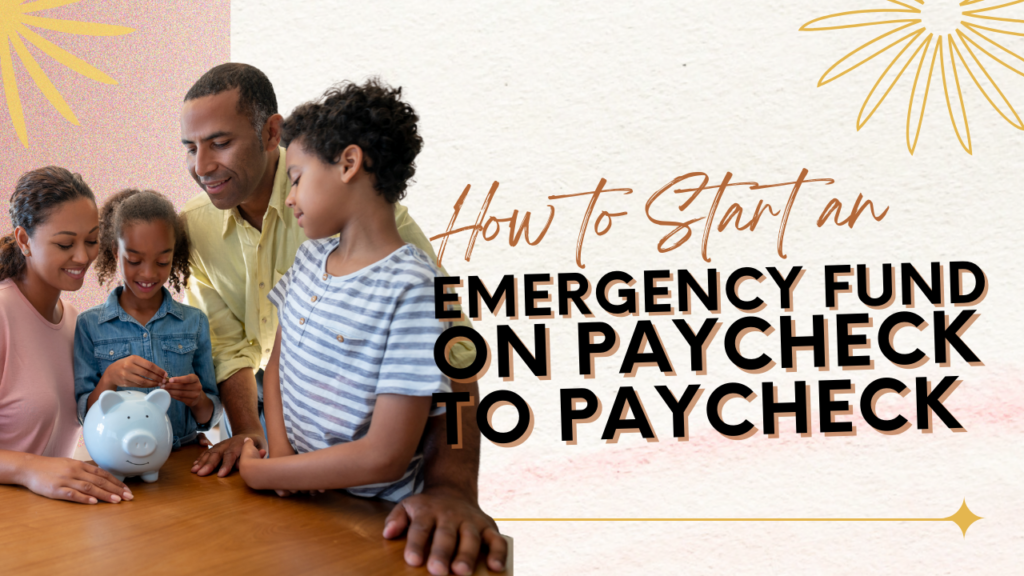Why, you might ask, is a will so crucial for families, especially for moms like us? It’s not just about assets and legalities; it’s about securing our family’s future and ensuring our wishes are honored. A will is more than a document; it’s a testament of love and foresight and a potent part of your estate planning tools.
What is a Will?
A will is a legal document that outlines how you want your assets distributed after your passing. It’s essential for protecting your family’s future and ensuring your wishes are respected through a binding legal arrangement.
Why Creating a Will is Crucial for Estate Planning for Moms
As moms, we want to protect our children in every way possible. A will is a tool to safeguard their financial future, especially in unforeseen circumstances. It turns your desires into a matter of public record, and is a vital estate planning tool.
The Emotional Value of a Will
Beyond the financial aspect, a will provides emotional peace of mind by helping you protect assets that you can pass on. Knowing that your family is taken care of can alleviate a great deal of stress and anxiety.

How to Start the Process
Embarking on the journey of creating a will can feel overwhelming, but it’s a process that can be broken down into manageable steps.
Involving Your Family in the Process
It’s beneficial to discuss your will with your family. Good estate planning needs you to be honest and open with the people involved in it. This openness ensures that your intentions are clear and can help prevent conflicts later on.
Begin by taking an inventory of your assets. This includes everything from property and investments to personal possessions with sentimental value. Next, consider the people in your life who matter the most – your children, surviving spouse, relatives, and even close friends. Think about how you would like to support them after your passing.
Guardianship and Your Children
If you have minor children, your will should name a guardian. This decision is crucial for their well-being in case of your absence.
Choosing an Executor
Once you have a clear picture of what you own and who you want to benefit, it’s time to make some key decisions. This involves choosing an executor – someone you trust to carry out your wishes. Additionally, if you have minor children, appointing a guardian in your will is crucial. These decisions should reflect your deepest wishes for your family’s future and the well-being of your children
Consulting A Professional For Your Legal Document
Creating a will involves understanding certain legal requirements. These can vary by location, but generally, a will must be written, signed, and witnessed.
After these preliminary steps, consult with a legal professional, such as an estate planning attorney, to help you draft your will. They can ensure that your will complies with state laws and truly reflects your intentions. Remember, a will can be as straightforward or as detailed as you need it to be. The important part is to start the process and create a plan that offers peace of mind and security for your loved ones.

Common Misconceptions About Wills
When it comes to wills, there are several myths and misconceptions that can lead to confusion and hesitation. By dispelling these myths, we can approach the process with clarity and confidence.
“Wills are only for the wealthy.”
One of the most common misconceptions is that wills are only necessary for those with substantial wealth. This couldn’t be further from the truth. Regardless of the size of your estate, a will is crucial for specifying your wishes for the distribution of your assets, no matter how modest. It’s not just about money or property, but also about making your intentions known and legally binding for even the simplest of possessions.
“My family knows what I want, so I don’t need a will.”
Assuming that your family knows your wishes and will act upon them without a legal document is risky. As Lisa Smith from Investopedia puts it: “If you die without a will, those wishes may not be carried out.” Without a will, the state laws dictate how your assets are distributed, which may not align with your desires. A will provides clear instructions and helps prevent potential conflicts among family members.
“Creating a will is a one-time task.”
Many believe that once a will is created, it doesn’t need to be revisited. The truth is, life changes – such as marriages, divorces, births, and deaths – necessitate updates to your will. Regularly reviewing and updating your will ensures that it accurately reflects your current circumstances and wishes.
“Wills are too complicated and expensive to create.”
The process of creating a will can be straightforward and affordable. While complex estates might require more detailed planning and legal assistance, many situations can be addressed with simpler solutions. There are also a variety of resources and services available at different price points, so creating a will is accessible for most people.
“If I’m young and healthy, I don’t need a will.”
Age and health shouldn’t be determining factors in whether to create a will. Life is unpredictable, and having a will is a proactive measure to protect your loved ones and your assets, regardless of your age or health status. Howard Hook, a writer for Forbes, puts it succinctly: “Having a will, regardless of your age, is an important part of a comprehensive financial plan and is not just intended to facilitate who gets your stuff when you are no longer alive.”
“A will covers all aspects of my estate and healthcare decisions.”
This is a common misunderstanding. A will primarily covers the distribution of assets after your death. It does not include healthcare decisions or the management of your affairs if you become incapacitated. For these purposes, other documents like living wills and powers of attorney are necessary.
“My debts die with me.”
Another misconception is that debts are automatically forgiven upon death. In reality, outstanding debts are typically settled using the assets from your estate. This is an important factor to consider when planning the distribution of your assets.

Asset Distribution
Deciding how to distribute your assets is a deeply personal process that requires thoughtful consideration. You want to ensure that your assets are allocated in a way that reflects your values and wishes. Start by categorizing your assets. Each category might require a different approach to distribution:
- financial (like savings and investments)
- physical (such as real estate and vehicles)
- personal (items with sentimental value)
For financial assets, consider the immediate and future needs of your beneficiaries. Young children might benefit from a trust fund that provides for their education and welfare. For physical assets, think about who would most appreciate or need them. A family home, for example, might go to the child who will raise their own family there.
Sentimental items deserve special attention. These objects might not have high monetary value, but their emotional value is immense. Be explicit about who receives these items to avoid misunderstandings among your loved ones.
Remember, fairness doesn’t always mean equality. Distributing assets based on need, relationship, and your beneficiaries’ circumstances can sometimes be the kindest and most practical approach.
Financial Planning Beyond a Will
Creating a will is a vital component of financial planning, but it’s just one piece estate planning. To ensure comprehensive protection and planning for your family’s future, consider other important elements of financial and legal planning such as a power of attorney, living wills, and trusts.
Living Will
A Living Will, also known as an advance directive, outlines your wishes regarding medical care should you become unable to communicate your decisions. This document is crucial for avoiding family conflicts and ensuring your healthcare preferences are respected.
Power of Attorney
A Power of Attorney is another key element. This allows you to appoint someone to manage your affairs if you’re unable to do so. This can include financial decisions, healthcare choices, or both, depending on the type of Power of Attorney you choose.
Trusts
For more complex financial situations, setting up trusts can be beneficial. Trusts provide greater control over how your assets are distributed and can offer tax benefits and protection from creditors. It’s also highly customizable: “Trusts can be designed to deal with specific situations or to exercise special control over the distribution and management of your assets and avoid probate [court],” according to Roger Young, CFP of T.Rowe Price.
Review and Update Your Financial Documents
Lastly, regularly review and update your financial plans, including your will, to reflect life changes such as marriage, divorce, the birth of children, or the acquisition of significant assets. An up-to-date plan ensures that your wishes are accurately represented and your family is well cared for, no matter what the future holds.
Updating Your Will
Life changes, such as marriage, divorce, or the birth of a child, can affect your will. Regular updates ensure that your will remains relevant and effective.
Putting Together Your Estate Plan
Remember that creating a will is a profound act of love and responsibility. It’s not merely about distributing assets; it’s about ensuring the well-being and future security of your loved ones. As moms, we tirelessly work to protect, nurture, and provide for our families.
A well-crafted will is a continuation of this care, extending beyond our physical presence. It brings clarity, prevents disputes, and upholds our wishes, ensuring that our legacy and love continue to guide our family even when we’re not around. So, take that step today for peace of mind and a secure future for your family. Your will is not just a piece of paper; it’s a beacon of your love, values, and wishes, illuminating the path for generations to come.
FAQs
Is creating a will expensive?
- Creating a will can be cost-effective, especially when considering the peace of mind it provides.
Can I write my own will?
- While it’s possible to write your own will, consulting a professional can ensure it meets all legal requirements.
How often should I update my will?
- It’s advisable to review and potentially update your will after major life events.
What happens if I don’t have a will?
- Without a will, state laws will determine how your assets are distributed, which may not align with your wishes.
Can a will be contested?
- Wills can be contested, but having a well-drafted and updated will reduce this risk.




